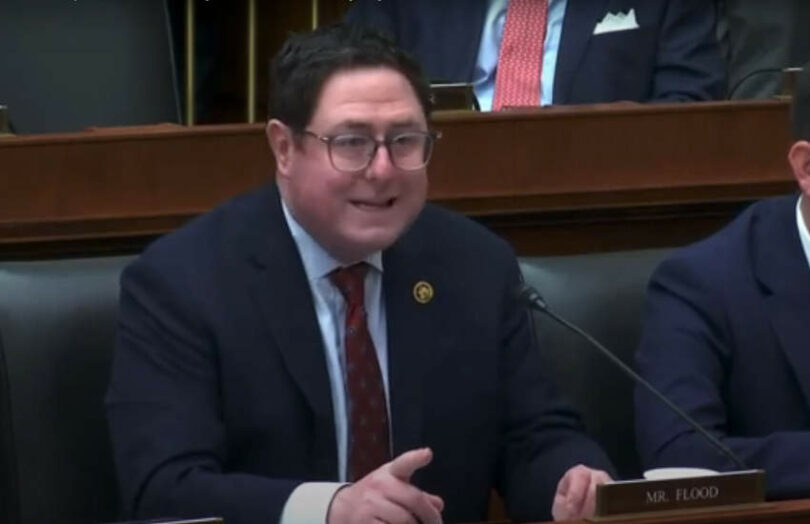Yesterday the House Financial Services Committee passed a resolution to reject the SEC’s accounting rule that prevents banks from providing digital asset custody. Members of Congress from both sides of the House proposed the resolution, although several Democrats objected. The final vote in favor was 31 to 20. The resolution will be binding once the full House and Senate approve it. Judging by a letter to the SEC from various banking and securities federations earlier this month, the industry thinks this will take time.
Last year the Government Accountability Office (GAO) ruled that SAB 121 should have been subject to Congressional review.
Staff Accounting Bulletin (SAB) 121 requires all companies, not just banks, to put digital assets held in custody on their balance sheet as both an asset and liability. That is unheard of in accounting. Given banks have regulations setting capital requirements based on their balance sheet, this makes custody prohibitively expensive.
“The end result is that banks must choose to either custody digital assets, thus inflating their balance sheet and severely affecting every other line of business, or stay entirely out of the market,” said Congressman Flood, one of the resolution proposers. “That’s not much of a choice at all. In effect, SAB 121 precludes banks from taking custody of digital assets altogether.”
Both sides presented various arguments. These included:
- Bitcoin ETF cryptocurrency is held in custody by non banks, creating concentration and security risks
- The SEC didn’t consult with bank regulators
- The definition of digital assets covers all tokenized asses, not just crypto
- It could impact international bank competitiveness.
Those who opposed the resolution noted it prevents the SEC from future guidance in this area. Some argued the rule was not binding.
The impact of the custody blocker
The cryptocurrencies underpinning the 11 Bitcoin ETFs are not held in custody by regulated banks, creating higher risks for investors as well as concentration risk – just four companies custody the cryptocurrency, with Coinbase looking after the bulk.
“This imposes a concentration risk to the safety and soundness of the financial system,” noted Congressman Nickel (Democrat).
He continued, “Additionally, the SEC’s overly broad definition of digital assets doesn’t differentiate between cryptocurrencies and tokenized deposit-like bonds issued on a blockchain. This discourages responsible innovation with distributed ledger technology that could expedite an automated payment clearing, reconciliation and settlement service.”
Republican Whip Emmers and others asserted that this impacts banks’ international competitiveness, given that foreign banks don’t have the same restrictions. We’ve previously published figures indicating U.S. bank custody is zero. However, foreign bank custody is also very small scale.
Several Members of Congress noted that the SEC didn’t consult with bank prudential regulators. When quizzed on the topic a while back, Federal Reserve Chair Powell acknowledged that putting assets under custody on the balance sheet was not the norm.
Representative Hill noted that the OCC allows banks to provide digital asset custody but requires specific approval in advance. Hence, banking regulators already have the tools they need to supervise custody.
Is SAB 121 binding?
However, Democrat Congressman Sherman said that disclosure is critical. “Now you can argue that it shouldn’t be on the balance sheet, that the SEC should change its regulation and put it in a footnote,” said Representative Sherman. “But you cannot argue, given all of the fraud and all of the theft in the crypto space, that an entity could hold hundreds of millions or billions of dollars of crypto and not even tell its investors that it is running that risk.”
He went on to assert that the rule is not binding. “The bank regulators are free to instead regard this as a footnote disclosable item rather than an on-balance sheet item affecting the various ratios and capital requirements. So this rule will not do the harm that’s being stated.”
In fact, SEC Chair Gensler asserted this in the past. However, banks have spent considerable time on this topic, concluding that bank regulators will treat the balance sheet as published.
Others have said the banks could just put the details in the notes, but Congressman Hill noted that a lack of compliance would result in an SEC referral to the enforcement division.
Why doesn’t the SEC update the rule?
Sherman and Democrat ranking member Waters were concerned that by setting aside the rule, the SEC would not be able to issue similar rules in the future.
“If this Congressional resolution is signed into law, it will have a chilling effect on the SEC’s ability to issue staff level accounting and legal guidance on any other issue in the future,” said Representative Waters.
“That’s because this resolution not only repeals the bulletin but prohibits the SEC from ever issuing a substantially similar bulletin again. Moreover, the SEC staff would likely think long and hard before offering guidance to public companies in the future, even on completely unrelated accounting topics. This resolution would cause serious harm to our markets.”
However, given the extent of pushback from industry, the GAO and Congress, the SEC has had ample time to amend SAB 121, which was first published almost two years ago. As Congressman Sherman noted, the SEC could move the disclosure to the notes. The industry is also requesting that it remove tokenized securities. There’s still time for SEC 121 to be amended before the full House and Senate pass the resolution.
Update: We added the last three sections post publication.






